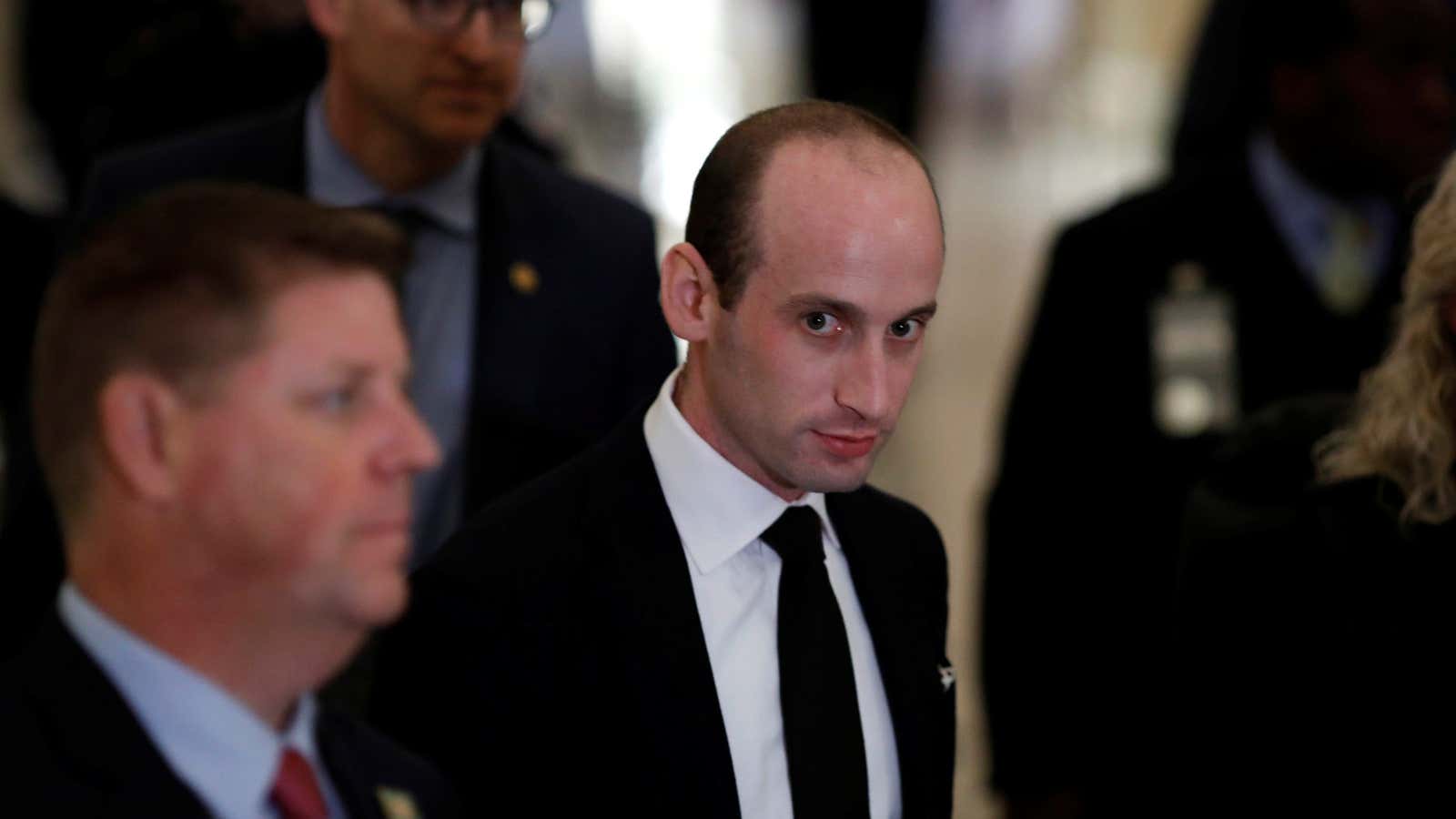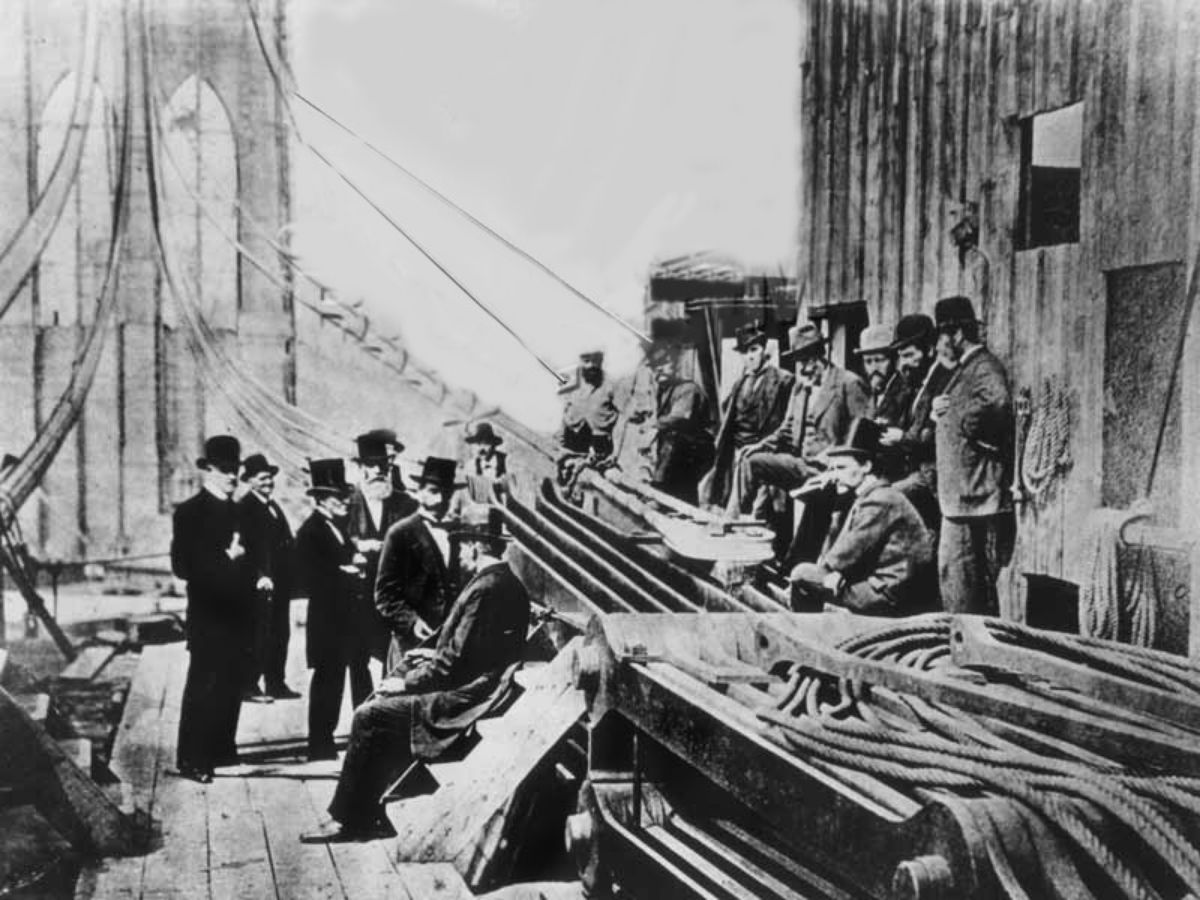Is Stephen Miller The Right Choice For A National Security Position?

Table of Contents
Stephen Miller's Policy Positions and their Impact on National Security
Stephen Miller's policy positions, particularly regarding immigration and foreign policy, have significantly shaped the debate surrounding his suitability for national security roles. His hardline stance on immigration and specific foreign policy views are key factors in this assessment.
Immigration Policies
Miller's hardline stance on immigration has been a defining feature of his career. He advocated for policies like stricter border controls, reduced legal immigration, and increased deportations.
- Increased Border Security: While proponents argue this enhances national security by preventing illegal entry and potential threats, critics contend it strains resources and alienates key international partners.
- Zero Tolerance Policy: The implementation of a "zero tolerance" policy towards illegal border crossings led to family separations, drawing international condemnation and raising questions about its long-term impact on U.S. national security.
- Travel Bans: Miller played a key role in the development of several controversial travel bans, targeting individuals from specific countries. Critics argued these bans damaged international relationships and did little to improve national security.
Experts are divided on the efficacy of Miller's immigration policies in bolstering national security. Some argue that stricter border controls and vetting processes can enhance security, while others highlight the potential negative impacts on international relations and the economic benefits of immigration.
Foreign Policy Views
Miller's publicly known views on foreign policy are characterized by a more nationalistic approach. He has reportedly favored a more isolationist stance in certain areas while advocating for assertive actions in others.
- Relationship with Mexico: His approach to relations with Mexico, often marked by strong rhetoric and demands for border wall funding, has been criticized for potentially harming crucial bilateral cooperation on security issues.
- China Relations: His views on China are largely undefined, although his past actions may hint at a preference for a more confrontational approach, potentially increasing geopolitical tensions.
Evaluating the long-term impacts of Miller's foreign policy views on national security requires consideration of their potential to strengthen or weaken vital alliances and diplomatic efforts.
Relationship with Key Foreign Powers
Miller's stance on relationships with key foreign powers has been a subject of ongoing scrutiny. His preferred approach often involves a more assertive and less collaborative posture.
- NATO: While details of his views on NATO aren't widely public, his general approach to international relations suggests a potential for strain on crucial alliance relationships.
- European Union: His stance on the EU likely reflects a skepticism towards international organizations and multilateral agreements, potentially impacting US influence and security cooperation within the region.
Analyzing Miller's approach to bilateral relations requires careful consideration of the potential consequences for alliances and international cooperation, crucial components of a robust national security strategy.
Assessing Stephen Miller's Qualifications and Experience
Evaluating Stephen Miller's suitability for a national security position demands a thorough assessment of his qualifications, experience, and leadership capabilities.
Background and Expertise
Miller's background primarily lies in political communications and policy advising. He lacks direct experience in military or intelligence operations, common backgrounds for national security advisors.
- Education: His educational background provides a foundation in political science, but it doesn't directly translate to the deep expertise often associated with national security roles.
- Career Path: His career path has focused primarily on policy development and implementation, with an emphasis on immigration and related issues.
While his policy expertise is undeniable, the lack of direct experience in national security fields raises questions about his suitability.
Leadership and Management Skills
Miller's leadership style has been described as assertive and sometimes confrontational.
- Collaboration: His ability to effectively collaborate with diverse teams and navigate complex bureaucratic structures is a significant concern, given the collaborative nature of national security decision-making.
- Crisis Management: His experience in managing crises related to national security is limited, raising questions about his capacity to handle high-pressure situations.
The effectiveness of his leadership style in the context of national security demands careful consideration.
Public Perception and Controversies
Stephen Miller's public image has been significantly impacted by numerous controversies. This perception needs to be assessed for its potential influence on national security.
Controversial Statements and Actions
Miller has made several controversial statements and taken actions throughout his career that have generated considerable public attention and criticism.
- Rhetoric: His use of strong rhetoric and sometimes inflammatory language raises concerns about its potential to negatively impact international relations and national security.
- Policy Positions: The controversial nature of his policy positions, particularly on immigration, has drawn strong criticism, potentially harming alliances and international cooperation.
These controversial elements raise serious questions about his suitability for a role demanding a high degree of diplomatic sensitivity.
Potential for Divisive Leadership
Miller's divisive public image could significantly impact international relations and national security.
- International Cooperation: His controversial stances and rhetoric could hinder effective international cooperation and damage vital alliances.
- Domestic Politics: His divisive presence could exacerbate political polarization within the United States, further complicating national security efforts.
The potential for his leadership to be divisive could significantly undermine efforts to promote stability and security, both domestically and internationally.
Conclusion
Assessing Stephen Miller's suitability for a national security position requires careful consideration of his policy positions, qualifications, and public image. While his policy expertise and experience in shaping immigration policy are evident, significant concerns remain regarding his qualifications in broader national security issues, his potential to be a divisive figure, and the potential negative consequences of his leadership style on international relations and national security. His hardline stance on immigration and potentially isolationist foreign policy views raise questions about their long-term impact. Ultimately, whether Stephen Miller is the right choice depends on the specific priorities and risks one is willing to accept. Further research into his views on specific national security challenges and his leadership capabilities in collaborative environments is crucial for a comprehensive assessment. Consider the implications of "Stephen Miller's role in national security" and the suitability of Stephen Miller for national security positions before forming your opinion.

Featured Posts
-
 How Huge Raves Contribute To Local Economies
May 18, 2025
How Huge Raves Contribute To Local Economies
May 18, 2025 -
 Barbara Mensch On The Construction And Legacy Of The Brooklyn Bridge
May 18, 2025
Barbara Mensch On The Construction And Legacy Of The Brooklyn Bridge
May 18, 2025 -
 Barbara Mensch Recounts The Brooklyn Bridges History
May 18, 2025
Barbara Mensch Recounts The Brooklyn Bridges History
May 18, 2025 -
 Honoring Emily Warren Roebling Her Crucial Role In Building The Brooklyn Bridge
May 18, 2025
Honoring Emily Warren Roebling Her Crucial Role In Building The Brooklyn Bridge
May 18, 2025 -
 Reddit Us Servers Down Page Not Found Error Affecting Users
May 18, 2025
Reddit Us Servers Down Page Not Found Error Affecting Users
May 18, 2025
Latest Posts
-
 Choosing The Best Crypto Casino Jackbits Advantages For 2025
May 18, 2025
Choosing The Best Crypto Casino Jackbits Advantages For 2025
May 18, 2025 -
 Finding The Best No Kyc Online Casinos In 2025 A Players Guide
May 18, 2025
Finding The Best No Kyc Online Casinos In 2025 A Players Guide
May 18, 2025 -
 Why Jackbit Is The Best Bitcoin Casino For 2025
May 18, 2025
Why Jackbit Is The Best Bitcoin Casino For 2025
May 18, 2025 -
 Best No Id Verification Casinos Online Secure And Anonymous Gaming In 2025
May 18, 2025
Best No Id Verification Casinos Online Secure And Anonymous Gaming In 2025
May 18, 2025 -
 Izvestaj Sa Generalke Srbija Testira Formu Pred Evrobasket
May 18, 2025
Izvestaj Sa Generalke Srbija Testira Formu Pred Evrobasket
May 18, 2025
